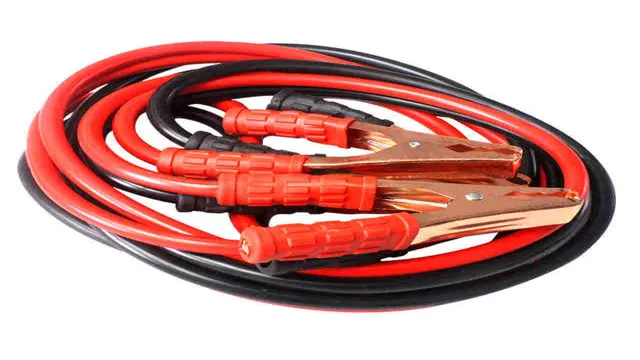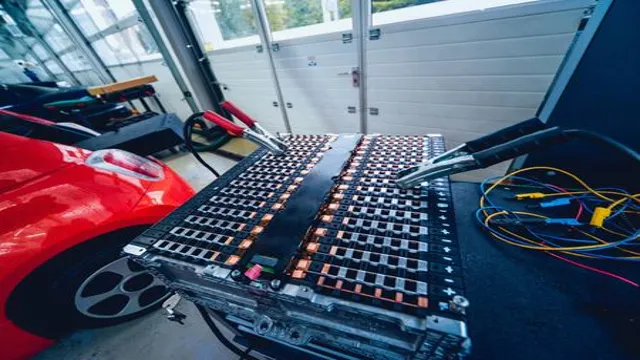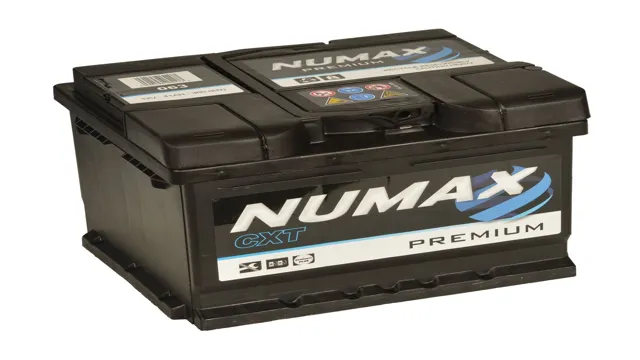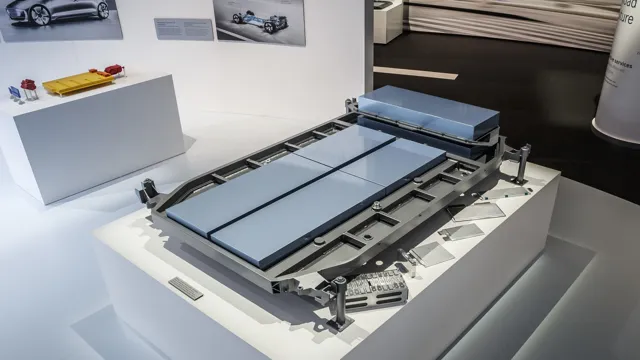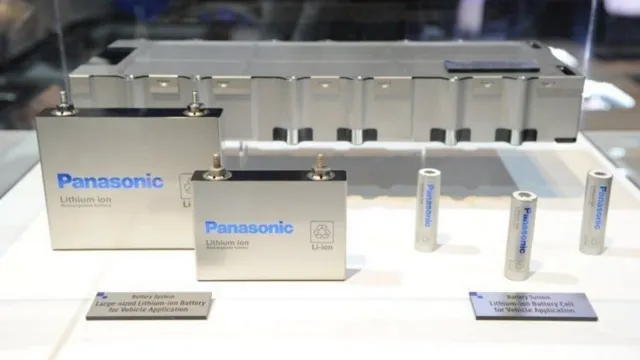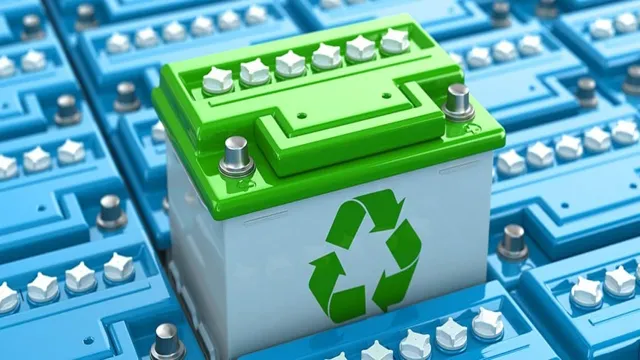Shockingly Important: The Ins and Outs of Car Battery Wires and Electrical
Without car battery wires, your vehicle’s electrical system would not be able to function. These wires are responsible for connecting various components of your car’s electrical system, including the starter, alternator, and lights. Despite their importance, many car owners are not aware of the vital role that battery wires play in the functioning of their vehicle.
In this blog post, we will explore the electrical connection provided by car battery wires, and why it is essential for the proper operation of your car. Whether you’re a car enthusiast or just curious about how your vehicle works, read on to learn more!
Understanding Car Battery Wires
Car battery wires are the electrical connections that power your vehicle by delivering the electrical charge from the battery to the necessary components. The wires are typically made of copper with a plastic coating to prevent corrosion and damage to the wire itself. Car battery wires come in a variety of sizes and shapes depending on their location and the amount of current they need to carry.
For example, the battery ground wire is usually thicker than the positive wire as it needs to handle a larger load. It is important to regularly inspect your car battery wires for any signs of damage such as fraying or corrosion, as this can lead to poor electrical connectivity and potentially cause your car to fail to start. In addition, it is important to ensure that the wires are properly connected to the battery terminals to ensure maximum efficiency and safety while operating your vehicle.
How do car battery wires work?
Car battery wires are an essential component of a car’s electrical system. They serve as the path for electricity to flow from the battery to the rest of the car’s electrical components, including the starter motor, lights, and computer. When you turn the key in the ignition, the battery sends a surge of electricity to the starter motor through the positive (red) wire.
The negative (black) wire, on the other hand, completes the circuit by connecting the battery to the car’s chassis, which acts as a grounding point. It’s important to ensure that the battery wires are secure and in good condition to prevent any electrical issues. If your car isn’t starting or your lights are flickering, it could be a sign of loose or corroded battery wires.
By understanding how car battery wires work, you can troubleshoot any issues and keep your car running smoothly.
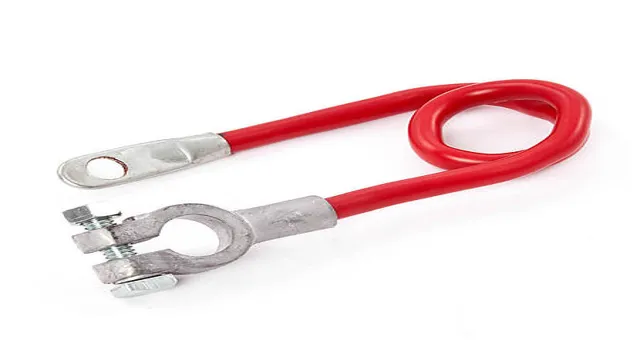
What are the different types of car battery wires?
Car battery wires come in several different types, each with its unique specifications and purposes. The most common type of car battery wire is the traditional copper wire, which is durable, flexible, and conducts electricity well. However, copper wires are prone to corrosion and may need to be replaced more frequently.
Another type of car battery wire is the aluminum wire that is becoming increasingly more popular. Aluminum wires are cheaper than copper wires and are lighter in weight, making them a good option for modern car models that emphasize fuel efficiency. Additionally, there are also specialty wires like tinned copper wire, which is coated with a layer of tin to improve its resistance to corrosion in harsh environments.
Overall, understanding the different types of car battery wires is essential to ensure that your vehicle’s electrical system works efficiently and safely.
Signs of Electrical Problems with Car Battery Wires
If you’re experiencing electrical problems with your car battery, there are several signs you should look out for that could indicate issues with the battery wires. One of the most common signs is corrosion on the battery terminals, which can cause a poor connection and prevent the battery from charging properly. Another sign is a weak or dead battery, which could indicate a problem with the wires that connect the battery to the rest of the car’s electrical system.
You may also notice that your headlights or interior lights are dimmer than usual, which could mean that there’s an issue with the wires that supply power to these components. If you experience any of these symptoms, it’s important to have your car inspected by a qualified technician who can diagnose the problem and perform any necessary repairs. By addressing issues with your car battery wires early on, you can help prevent more serious problems and ensure that your vehicle remains in good working order.
What are the symptoms of a faulty car battery wire?
If you suspect that your car’s battery wire may be causing electrical issues, there are a few signs to look out for. One of the most common symptoms of a faulty battery wire is difficulty starting the car. You may notice that the engine is slow to turn over or doesn’t start at all.
Another common sign is intermittent or inconsistent electrical function, such as flickering headlights or dimming dashboard lights. Additionally, you may notice a strange smell, such as a burning odor, coming from the engine. This could indicate that the wire is overheating or short-circuiting.
Overall, it’s important to address any electrical issues with your car as soon as possible to prevent further damage and ensure your safety on the road.
How to diagnose electrical issues with car battery wires
Diagnosing electrical issues with car battery wires can be a daunting task, especially for those who do not have the technical know-how. However, there are clear signs that can indicate when something is wrong. These include flickering lights, slow-starting engine, and dashboard warning lights.
Flickering lights may mean that there are loose connections in the battery terminal or the alternator is failing. Slow-starting engine may indicate that the battery is weak or the starter is faulty. When the dashboard warning lights come on, it’s time to have the battery and its wiring system checked by a professional.
In case of any of these issues, it is important to take action as soon as possible to avoid further damage. Getting a professional to diagnose and fix the issue can save one a lot of trouble and money in the long run. Remember, regular maintenance of your car’s electrical system can go a long way in preventing breakdowns and unexpected expenses.
Tips for maintaining car battery wires
Car Battery Wires Car battery wires are an essential part of your car’s electrical system that are responsible for delivering power from the battery to the different components in the car. However, over time, these wires can wear out, become corroded, or develop other issues that can cause electrical problems. One of the most common signs of a problem with car battery wires is difficulty starting the car, which is often due to a lack of power being delivered to the engine from the battery.
Other signs include flickering headlights, dim interior lights, or electrical systems failing to turn on. To avoid these issues, it’s important to regularly inspect the battery wires, check for any signs of damage or corrosion, and ensure they are securely attached to the battery. If you notice any of these signs of trouble with your car battery wires, it’s important to have them inspected and repaired by a professional to prevent more serious electrical problems down the road.
Replacing or Upgrading Car Battery Wires
When it comes to maintaining a healthy vehicle, the electrical system is often overlooked. One crucial component in the electrical system is the car battery wires. These wires are responsible for transmitting the electrical power from the battery to the rest of the car.
Over time, these wires can become corroded, damaged, or simply wear out. This can lead to a decrease in the electrical power delivered to the car, resulting in poor performance and even a dead battery. If you notice any issues with your car’s electrical system, it may be time to replace or upgrade your car battery wires.
Upgrading to high-quality wires can improve the conductivity, ensuring that your car receives the power it needs to perform optimally. It’s a small investment that can make a big difference in the longevity and reliability of your vehicle. Don’t let faulty car battery wires keep you stranded on the side of the road – upgrade them today!
When to replace car battery wires
Car battery wires can become damaged due to a variety of reasons, such as corrosion, exposure to extreme heat or cold, or wear and tear. If your car is experiencing electrical issues such as difficulty starting, dimming headlights, or an illuminated check engine light, it may be time to inspect your battery wires. It’s crucial to ensure that the wires are securely connected to the terminals and are free of any cracks or fraying.
If you notice any damage to the wires, it’s recommended to replace them immediately. Upgrading to higher-quality wires can also improve the functionality of your car’s electrical system, leading to more efficient performance and a longer lifespan. Don’t wait until your car leaves you stranded on the side of the road – keep a close eye on your battery wires and replace them as needed to avoid any potential problems.
How to replace or upgrade car battery wires
Car battery wires need to be replaced or upgraded from time to time for optimal vehicle performance. To replace old or damaged wires, start by disconnecting the old wires from the battery terminals using a wrench or pliers. Then, cut the new wires to the same length as the old ones and strip them to expose about half an inch of copper wire.
Next, connect the new wire to each battery terminal, ensuring a tight connection with the wrench or pliers. Finally, secure the new wires to the battery bracket or housing using ties or clamps to prevent them from moving or rubbing against other components. Upgrading the wires can provide better power transfer and reduce the risk of electrical issues.
Look for high-quality wires with thicker copper strands and better insulation to improve your vehicle’s performance and reliability. With just a few simple steps, you can ensure that your car battery wires are in good condition, keeping your vehicle running smoothly and safely on the road.
Conclusion and Final Thoughts
In short, car battery wires are the unsung heroes of your vehicle’s electrical system. They provide a reliable and efficient pathway for the current to flow and keep your car humming along. Without them, your car would be as useless as an uncharged smartphone.
So, let’s give a round of applause to these mighty wires and appreciate their importance in powering our wheels!”
FAQs
What are car battery wires made of?
Car battery wires are typically made of copper or aluminum.
How long do car battery wires last?
The lifespan of car battery wires depends on the manufacturer and usage, but they may last anywhere from 3 to 8 years.
Can old car battery wires cause electrical problems?
Yes, corroded or damaged car battery wires can cause electrical problems like dimming headlights or difficulty starting the engine.
Can I replace car battery wires myself?
Yes, you can replace car battery wires yourself if you have the necessary tools and knowledge. However, it is recommended to seek the help of a professional mechanic if you are not confident in your ability to do so safely.
How often should I inspect my car battery wires?
It is recommended to inspect your car battery wires at least once a year or whenever you notice any signs of damage or corrosion.

